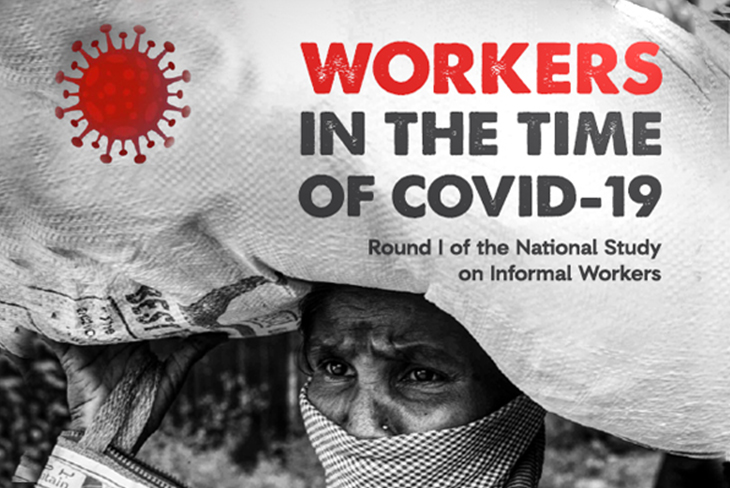People dependent on the informal economy have been hardest hit in the wake of the economic crisis coming with the ongoing pandemic. To develop a deeper understanding of how the economic crisis is manifesting in their lives, we conducted a survey with more than 11,500 informal workers across 21 states during the third phase of the nationwide lockdown. Almost 60 per cent of the respondents are migrant workers. The first in a series of a multi-round longitudinal study, the survey shows pre-existing vulnerabilities of the respondents, the impact of the lockdown on livelihoods and wages, and the access workers had to relief and entitlements. ‘Workers in the Time of COVID-19’ also deals with the status of housing, indebtedness, and access to food, water and healthcare, all factors that have wide-ranging and long-term implications for workers’ health and well-being.
Out of the 11,537 respondents, over three-fourths reported that they had lost their livelihood since the imposition of the lockdown. Close to half of the respondents said that they had not received any wages and about 17 per cent had received only partial wages. Furthermore, people’s access to essential services took a big hit. Only about a sixth of the respondents reported that their food consumption was “sufficient”, a significant decline from before the lockdown when 83 per cent of them believed that their food consumption was sufficient. Besides, nearly three-fourths of the respondents said that they could not access healthcare when they needed to during the lockdown. The full report can be viewed here.
In the following months, through the subsequent rounds with the same sample of workers, our survey will track changes in their incomes, employment, patterns of migration, asset ownership, access to food, water and essential services, indebtedness and savings, living and working conditions, labour relations, and access to entitlements and social security. We hope that this study would help formulate a strategy to support informal workers in accessing relief, in rebuilding their lives and livelihoods, in accessing entitlements, and in asserting their rights.

